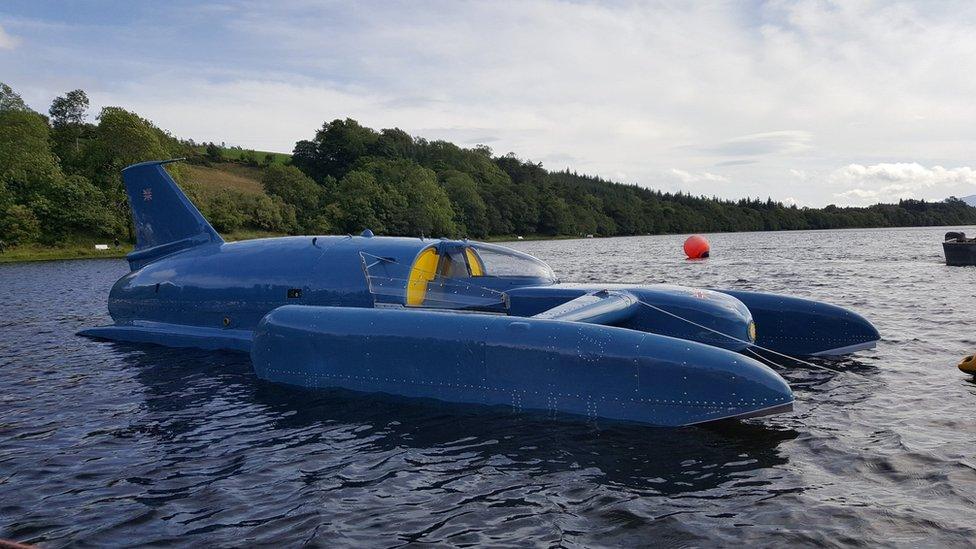Bluebird: Donald Campbell's restored hydroplane faces ownership row
- Published
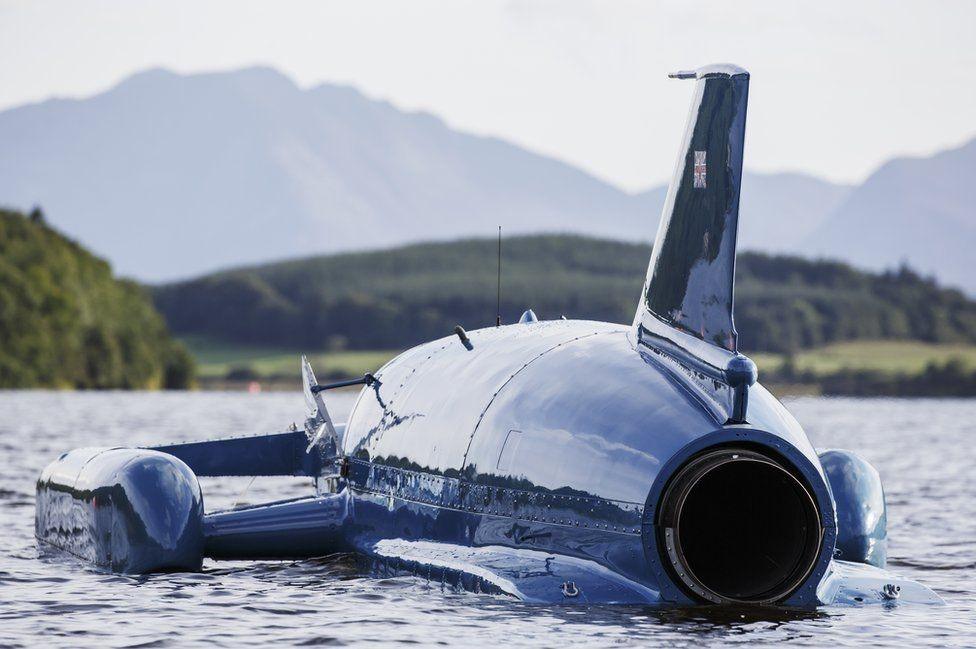
Bluebird K7 had been restored after being found at the bottom of Coniston Water
A museum has issued a letter of claim in its bid to secure the return of Donald Campbell's Bluebird, used in his ill-fated water speed record attempt.
The hydroplane had been given to the Ruskin Museum in Coniston by the family heritage trust and the wreckage was sent to a restoration project.
The museum said relationships had "broken down" and it wanted it back.
Bill Smith, who restored Bluebird K7, said the museum could "take their bits away" and he would build another one.
He recovered the wreckage in 2001 in Coniston Water, Cumbria, and the restored craft made its return to water on Loch Fad, Scotland, in 2018.
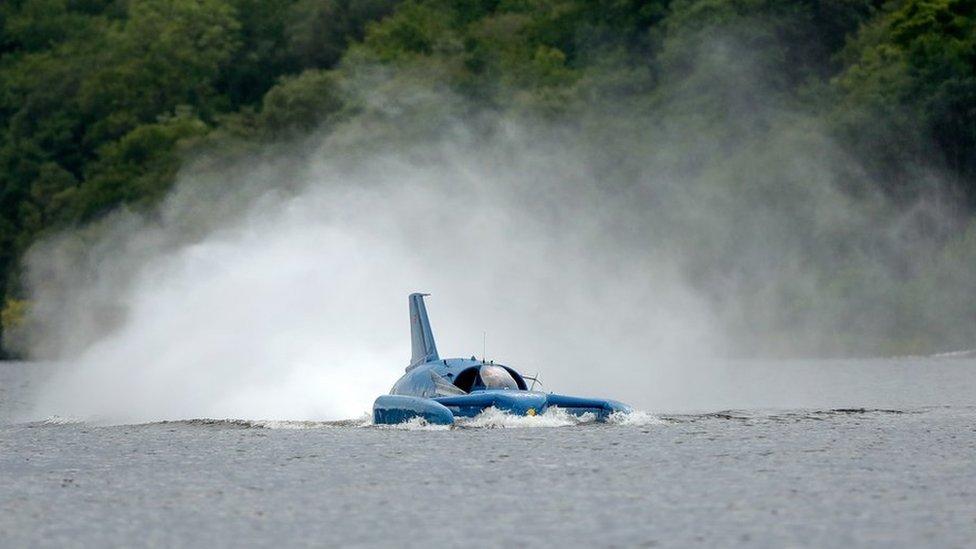
Bluebird reached speeds up 150mph (240kph) on Loch Fad on the Isle of Bute in Scotland
Mr Smith said his team had restored about "half a boat" while the other half was built "from scratch" in his North Shields workshop.
"It's dismantled already, what you have to remember is, from our point of view, Bluebird has never really been all in one piece," he said.
"Even when we were in Scotland there was a lot unfinished and it is to us just a large collection of parts."
He said there was no need for legal proceedings as some of Bluebird belonged to the museum and some of it belonged to his team.
"They can take their bits away, we have still got our bits, we will just build another one and there's no argument over it and we can do with it exactly as we please," he added.
In 2020 Mr Campbell's daughter, Gina, called for it to be returned to the scene of her father's death in the Lake District, amid an earlier legal row over where it should be displayed.
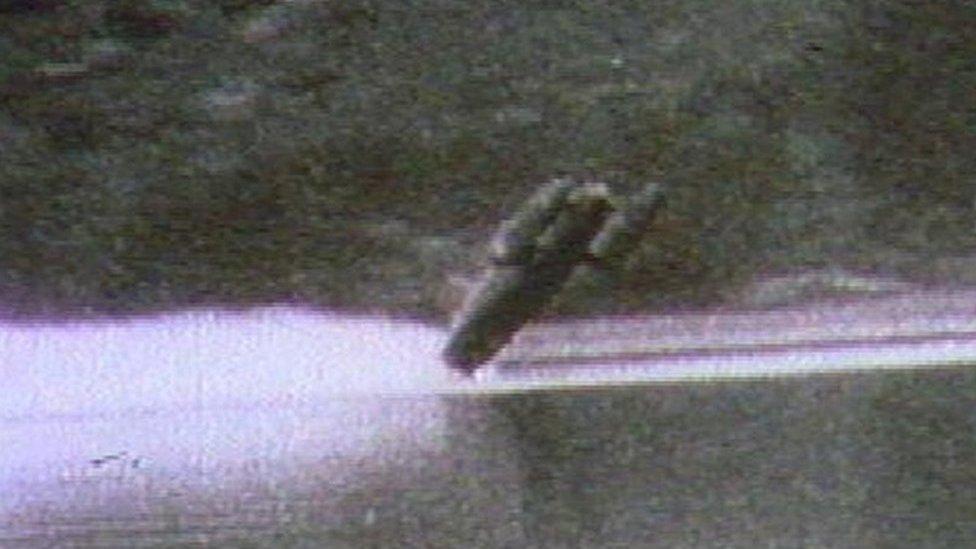
Donald Campbell was killed during his world record attempt on Coniston Water in January 1967
The museum said the letter of claim gave the Bluebird Project a "timeframe in which to respond" before formal legal proceedings start.
"This action is very much the last resort, with relationships having irretrievably broken down in late-2019, following efforts by the museum and the Campbell Family Heritage Trust who gifted the boat to the museum in 2006, to find an amicable solution to the claims made by Mr Smith regarding ownership and his intentions for the boat."
Campbell died at 08:51 GMT on 4 January 1967, while trying to break his own water speed record.
His remains are buried at Coniston Cemetery.
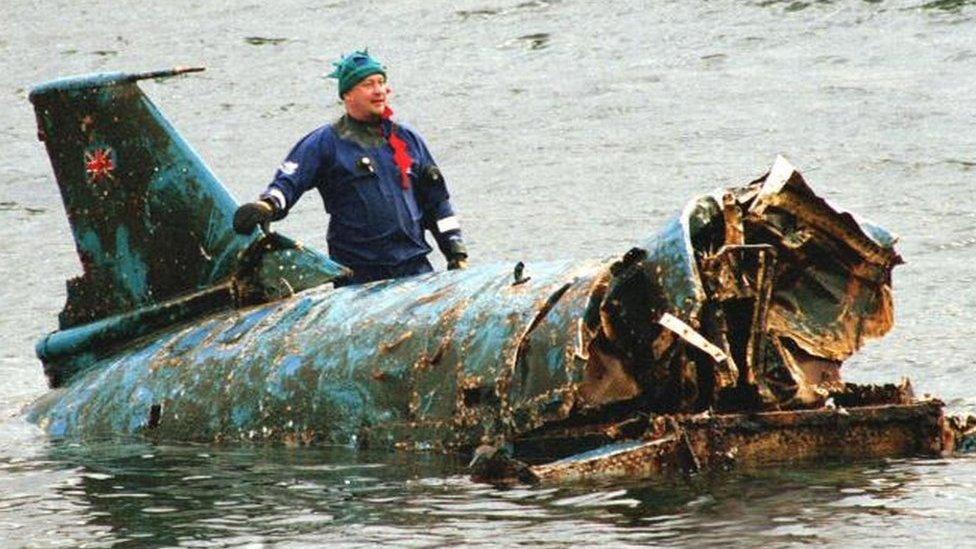
Bill Smith recovered Bluebird's wreckage in 2001

Follow BBC North East & Cumbria on Twitter, external, Facebook, external and Instagram, external. Send your story ideas to northeastandcumbria@bbc.co.uk, external.
Related topics
- Published4 January 2020

- Published12 February 2019
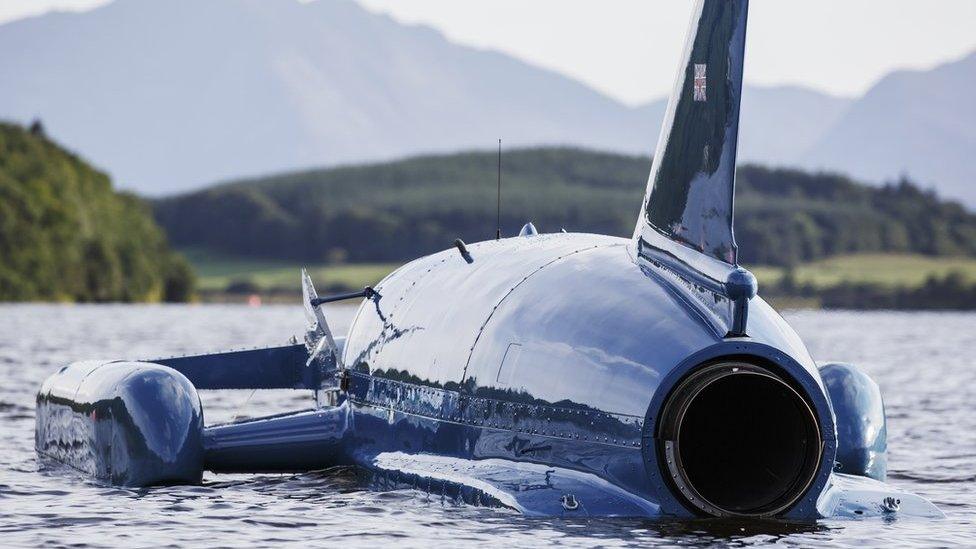
- Published9 August 2018
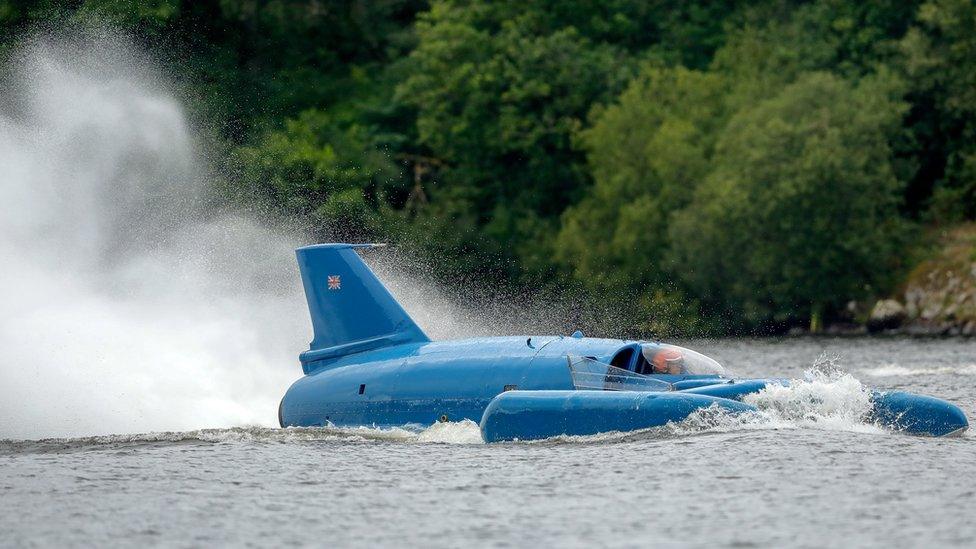
- Published15 August 2018

- Published4 August 2018
